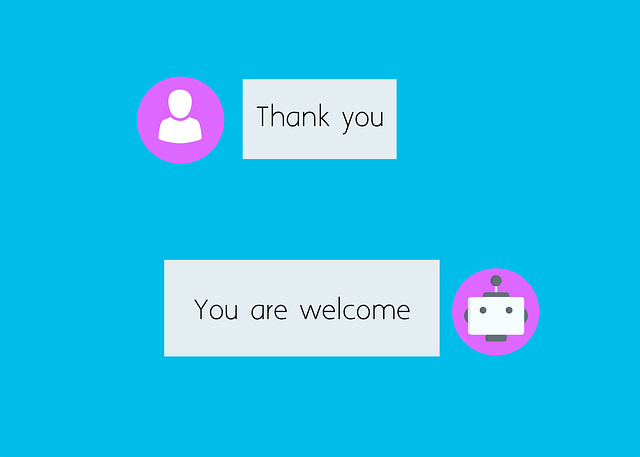Ecommerce chatbots, driven by NLP and ML, transform online shopping experiences through 24/7 support, context-aware interactions, and seamless integration with backend systems. They interpret user queries, provide tailored product recommendations, handle tasks like order tracking and returns, and boost customer satisfaction, ultimately driving sales and fostering stronger customer relationships in the digital retail landscape. Platforms like Shopify and WooCommerce simplify chatbot integration for personalized, AI-powered engagement.
Chatbots are transforming the way businesses interact with customers, especially in the dynamic landscape of ecommerce. This article delves into the inner workings of these AI-powered assistants, exploring key components like natural language processing (NLP) and integration strategies. We’ll uncover how NLP enables chatbots to understand and respond to customer queries, and discuss integrating these tools seamlessly into ecommerce platforms. Additionally, we’ll highlight the power of personalization in enhancing customer engagement with ecommerce chatbots.
- Understanding the Core Components of Ecommerce Chatbots
- The Role of Natural Language Processing (NLP) in Chatbot Functionality
- Integrating Chatbots into Ecommerce Platforms
- Enhancing Customer Engagement with Chatbot Personalization
Understanding the Core Components of Ecommerce Chatbots

Ecommerce chatbots are sophisticated digital assistants designed to enhance the online shopping experience. At their core, these chatbots are powered by advanced technologies like Natural Language Processing (NLP) and Machine Learning (ML). NLP enables the chatbot to understand and interpret human language, while ML allows it to learn from user interactions, improving its responses over time.
Key components of an ecommerce chatbot include a conversational interface, context awareness, and integration with backend systems. The conversational interface facilitates two-way communication between the chatbot and customers, enabling real-time queries and assistance. Context awareness ensures that the chatbot remembers previous customer interactions, providing personalized recommendations and support. Backend integration allows the chatbot to access crucial data like product information, inventory levels, and user profiles, thereby facilitating seamless transactions and enhancing customer satisfaction.
The Role of Natural Language Processing (NLP) in Chatbot Functionality

Natural Language Processing (NLP) plays a pivotal role in the functionality of ecommerce chatbots, enabling them to understand and respond to customer queries effectively. By utilizing NLP algorithms, chatbots can interpret user input, discern intent, and generate contextually relevant responses. This seamless interaction is crucial for enhancing customer experience, especially in the fast-paced world of online retail where quick and accurate support is paramount.
In the realm of ecommerce chatbots, NLP facilitates a wide range of tasks. It allows chatbots to process customer inquiries about product details, track orders, provide shipping updates, offer recommendations, and even handle returns or complaints. The advanced language models can grasp complex queries, ensuring that customers receive precise and helpful answers, thereby increasing customer satisfaction and loyalty.
Integrating Chatbots into Ecommerce Platforms

Integrating ecommerce chatbots into online stores has become a game-changer for many businesses, revolutionizing the way customers interact with brands. These intelligent virtual assistants offer 24/7 customer support, instantly addressing queries and enhancing user experiences. By leveraging natural language processing (NLP), ecommerce chatbots can understand customer requests, provide relevant product recommendations, and even assist in making purchases, thereby increasing sales and satisfaction rates.
On popular ecommerce platforms like Shopify and WooCommerce, integrating a chatbot is straightforward. Developers offer various plugins that enable seamless communication between the chatbot and existing store systems. This integration allows for efficient data exchange, ensuring chatbots have access to real-time inventory updates, customer information, and purchase history. As a result, they can deliver personalized interactions, making each customer experience unique and memorable.
Enhancing Customer Engagement with Chatbot Personalization

In today’s digital era, ecommerce chatbots are transforming the way businesses interact with their customers. By leveraging artificial intelligence and machine learning, these chatbots can provide personalized experiences tailored to individual user preferences. This level of customization goes beyond simple product recommendations; it involves remembering customer preferences, past purchases, and even subtle hints from conversations, all to offer relevant and engaging interactions.
Chatbot personalization enhances customer engagement by creating a sense of familiarity and understanding. For instance, an ecommerce chatbot might suggest products based on a customer’s browsing history or offer exclusive deals on items they’ve shown interest in previously. This not only improves user satisfaction but also increases the likelihood of conversions, making chatbots invaluable tools for businesses seeking to build stronger, more meaningful connections with their customers.
Ecommerce chatbots are transforming the way businesses interact with their customers. By leveraging natural language processing (NLP) and integrating seamlessly into online platforms, these digital assistants enhance customer engagement, provide personalized experiences, and ultimately drive sales. As the field continues to evolve, understanding the core components and strategic applications of ecommerce chatbots is essential for any forward-thinking retailer looking to stay competitive in today’s digital landscape.
